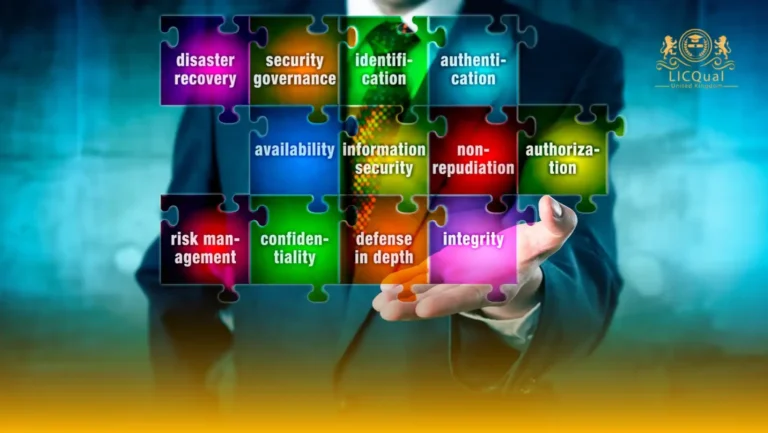The LICQual Level 7 Postgraduate Diploma in Long-Term Care Management is a prestigious qualification designed for experienced professionals working in long-term care, healthcare management, and related sectors. This programme is not intended for fresh candidates but is specifically tailored for individuals seeking to enhance their leadership capabilities, expand their strategic knowledge, and strengthen their ability to manage complex long-term care services effectively.
Learners undertaking this diploma will develop advanced skills in care management, policy implementation, ethical decision-making, and strategic leadership within long-term care settings. The course emphasises evidence-based practice, quality improvement, and regulatory compliance, preparing learners to address the evolving challenges of long-term care provision. It also contributes significantly to Continuing Professional Development (CPD), enabling learners to increase their career prospects, take on senior management roles, and lead high-performing care teams with integrity and professionalism.
Centres delivering this qualification are required to maintain the highest standards of teaching and support. This includes employing competent and qualified staff, providing access to up-to-date learning resources, and ensuring a supportive environment that promotes professional growth and learner success. High-quality delivery ensures that learners can fully engage with the content, develop critical management and leadership skills, and achieve the learning outcomes required for a Level 7 postgraduate diploma.
By completing the LICQual Level 7 Postgraduate Diploma in Long-Term Care Management, learners will be well-prepared to assume senior leadership positions, influence care policies, and drive excellence in long-term care services, ensuring the highest standards of care for vulnerable populations.
Course Overview
Qualification Title
LICQual Level 7 Postgraduate Diploma in Long-Term Care Management
Total Units
6
Total Credits
120
GLH
600
Qualification #
LICQ2200800
Qualification Specification
To enroll in the LICQual Level 7 Postgraduate Diploma in Long-Term Care Management, applicants must meet the following criteria:
|
Qualification# |
Unit Title |
Credits |
GLH |
|---|---|---|---|
|
LICQ2200800-1 |
Strategic Leadership in Long-Term Care |
20 |
100 |
|
LICQ2200800-2 |
Governance, Ethics, and Legal Compliance in Care Services |
20 |
100 |
|
LICQ2200800-3 |
Person-Centred Care and Quality Improvement |
20 |
100 |
|
LICQ2200800-4 |
Research Methods and Evidence-Based Practice in Long-Term Care |
20 |
100 |
|
LICQ2200800-5 |
Innovation, Change Management, and Risk in Long-Term Care |
20 |
100 |
|
LICQ2200800-6 |
Dissertation / Applied Long-Term Care Management Project |
20 |
100 |
By the end of this course, learners will be able to:
Unit 1: Strategic Leadership in Long-Term Care
- Critically evaluate advanced leadership theories and their application within long-term care organisations
- Analyse strategic planning frameworks to enhance organisational performance and resident outcomes
- Develop evidence-based leadership strategies to manage complex care services effectively
- Assess the impact of leadership styles on staff, culture, and service delivery
- Apply innovative approaches to address challenges in long-term care management
Unit 2: Governance, Ethics, and Legal Compliance in Care Services
- Critically analyse governance structures and their role in accountable long-term care management
- Apply ethical principles to complex decision-making scenarios in care services
- Evaluate legal frameworks and regulatory requirements impacting long-term care provision
- Examine ethical dilemmas and develop strategies for resolution
- Assess the importance of transparency, compliance, and accountability in care management
Unit 3: Person-Centred Care and Quality Improvement
- Analyse principles and practices of person-centred care in long-term care settings
- Develop strategies to implement quality improvement initiatives
- Evaluate care delivery processes to enhance resident satisfaction and wellbeing
- Apply tools and frameworks to monitor, assess, and improve care standards
- Demonstrate leadership in promoting continuous improvement and best practices
Unit 4: Research Methods and Evidence-Based Practice in Long-Term Care
- Critically evaluate research methodologies relevant to long-term care management
- Design a research proposal addressing a significant care management issue
- Apply quantitative and qualitative methods to collect and analyse care-related data
- Interpret and communicate research findings to support evidence-based decision-making
- Examine ethical considerations in conducting research in long-term care environments
Unit 5: Innovation, Change Management, and Risk in Long-Term Care
- Critically assess theories of innovation and change management in long-term care
- Develop strategies to implement and lead change initiatives effectively
- Evaluate risk management models for identifying and mitigating risks in care services
- Apply innovative solutions to improve service quality and operational efficiency
- Analyse barriers to change and propose strategies to overcome resistance within care teams
Unit 6: Dissertation / Applied Long-Term Care Management Project
- Independently design and conduct a substantial research or applied project in long-term care management
- Demonstrate advanced skills in research design, methodology, and ethical analysis
- Apply critical thinking to integrate theory, evidence, and practice to address long-term care challenges
- Produce a well-structured dissertation or project report demonstrating originality and professional relevance
- Communicate research findings and recommendations effectively to academic and professional audiences
The LICQual Level 7 Postgraduate Diploma in Long-Term Care Management is designed for experienced professionals seeking to advance their leadership, management, and strategic skills within long-term care services. This course is ideal for:
- Senior Long-Term Care Professionals aiming to develop advanced leadership and operational management skills.
- Care Home Managers and Administrators looking to strengthen governance, ethical decision-making, and regulatory compliance.
- Healthcare Policy Makers and Advisors wishing to influence long-term care strategies and policies effectively.
- Medical Practitioners, Nurses, and Allied Health Professionals seeking to enhance management skills within long-term care settings.
- Professionals aspiring to executive or senior management roles in care homes, residential facilities, or community care organisations.
- Learners committed to Continuing Professional Development (CPD) who want to enhance career prospects through an internationally recognised qualification.
- Individuals working in diverse or cross-cultural care environments seeking to apply culturally sensitive management and leadership practices.
Completing this programme equips learners with the expertise to lead long-term care services effectively, implement evidence-based practices, and drive improvements in care quality and organisational performance.
To deliver high-quality training and ensure learner success, centres offering the LICQual Level 7 Postgraduate Diploma in Long-Term Care Management must meet the following requirements:
- Qualified and Experienced Staff: Tutors and assessors must hold relevant postgraduate or professional qualifications in long-term care management, healthcare leadership, or related disciplines, and have practical experience in care management.
- Comprehensive Learning Resources: Centres must provide learners with access to up-to-date textbooks, journals, research papers, and digital learning tools to ensure engagement with current practices, policies, and evidence-based care management strategies.
- Suitable Learning Environment: Classrooms, seminar rooms, and online learning platforms must support interactive teaching, workshops, group discussions, and research activities. Centres should provide a safe, professional, and supportive learning environment.
- Robust Assessment and Feedback Systems: Centres must implement structured formative and summative assessments to monitor learner progress and provide timely, constructive feedback.
- Support for Continuing Professional Development (CPD): Centres should guide learners on CPD activities, career progression, and the practical application of learning in long-term care environments.
- Access to Technology and Digital Platforms: Learners must have reliable access to e-learning platforms, research databases, and digital communication tools for online learning, collaboration, and project work.
- Quality Assurance Processes: Centres must maintain strong internal quality assurance procedures to ensure that teaching, learning, and assessment meet LICQual standards and international best practices.
By adhering to these requirements, centres can provide a professional, engaging, and effective learning experience, preparing learners for senior leadership roles in long-term care management and enabling them to implement ethical, strategic, and evidence-based practices effectively.
Assessment and Verification
All units within this qualification are subject to internal assessment by the approved centre and external verification by LICQual. The qualification follows a criterion-referenced assessment approach, ensuring that learners meet all specified learning outcomes.
To achieve a ‘Pass’ in any unit, learners must provide valid, sufficient, and authentic evidence demonstrating their attainment of all learning outcomes and compliance with the prescribed assessment criteria. The Assessor is responsible for evaluating the evidence and determining whether the learner has successfully met the required standards.
Assessors must maintain a clear and comprehensive audit trail, documenting the basis for their assessment decisions to ensure transparency, consistency, and compliance with quality assurance requirements.







